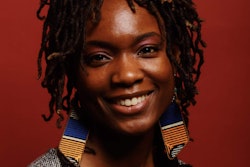When Veatronics Corporation needed engineering expertise to develop a highly advanced fetal monitor last year, it turned to North Carolina A&T State University for help.
“They came to us because we are recognized in the region as a top engineering program,” said Dr. John Kelly, Associate Dean of Graduate and Research Programs at North Carolina A&T State University.
As a result of technology research pioneered by the National Aeronautics and Space Administration (NASA), engineers at Veatronics (a Charlotte-based minority-owned electronics manufacturer) and a professor at North Carolina A&T in Greensboro NC developed a non-invasive fetal heart sensor. Expectant mothers and their unborn infants should appreciate the improvement over the current generation of fetal heart monitors.
Every day, dozens of universities and businesses such as North Carolina A&T and Veatronics, Inc. collaborate with each other to develop new technology. Through a process known as technology transfer, schools are using basic research — either developed by the school or by another research institution, such as a NASA laboratory — and developing it into commercially viable technologies in partnership with private companies. It is an arrangement that administrators of minority educational institutions (MEIs) and owners of minority business enterprises (MBEs) are hoping will increase.
“We stand ready to go. It’s a win-win situation for the schools and businesses,” said Decatur Rogers, Dean of the College of Engineering and Technology at Tennessee State University in Nashville.
For the past three years, a group of high technology businesses comprising the Minority-Owned Business Technology Transfer Consortium (MBTTC) have worked closely with scientists at the U.S. Department of Energy national laboratories and NASA to create new products as well as incorporate innovative technology into their businesses.
Donald Bell, executive director of the MBTTC, says part of the group’s mission is finding a way to work with MEIs to enable the schools to become active members in the MBTTC. Five historically Black colleges and universities were among the original group of institutions and businesses invited by the Energy Department to explore technology transfer in 1993.
“MBEs and the minority educational institutions can do a lot for each other. There are very few people who are trying to link the two together. There’s tremendous potential here for partnerships,” Bell said.
Developing a New Partnership
Since the 1980s, the federal government has been pushing technology transfer programs as a means to boost the economic competitiveness of private industry in the United States. For decades, the federal government pursued innovative research and development efforts largely through national defense, energy, and space programs. Traditionally, large companies had benefitted from technology transfer programs while small and minority-owned businesses often lacked the finances to take advantage of government-sponsored research and development.
Believing that technology transfer activity among American companies and research institutions failed to measure up, the U.S. Congress enacted several pieces of legislation. That was in the 1980s and the intent was to promote the transfer of technology from federal laboratories to the marketplace.
Since then, NASA and the U.S. Department of Energy have acted to boost their roles as leading federal agencies that sponsor technology transfer programs — many of which target small businesses, particularly MBEs, and MEIs.
“The idea is to use technology that has had its genesis in government and federal projects, and see that it is developed by private industry,” Rogers explained.
In 1993, the Energy Department and the Lockheed Martin company in Oak Ridge, TN, invited 15 African-American CEOs and officials from the five HBCUs to visit the Oak Ridge National Laboratory for a briefing and tour of the facility. That initial meeting led the African-American business owners to join up with Native American, Hispanic and Asian technology business owners to form the MBTTC.
In April 1994, the MBTTC began formal operations under a grant from DOE’s Oak Ridge Operations Office. With the grant, the MBTTC conducted workshops, meetings and trips to other DOE laboratories. MBTTC members traveled to the Savannah River Technology Center, Brookhaven National Laboratory, and the Los Alamos National Laboratory.
While the Energy Department and NASA have played a key role in sparking technology transfer efforts among MBEs, a number of MEIs have largely developed technology transfer programs in response to the needs of their communities and regions. Rogers said researchers and scientists at Tennessee State University have been participating in technology transfer projects for the past ten years. “Our involvement with technology transfer predated our association with the Department of Energy,” said Rogers.
In the mid-1980s, researchers at the Nashville-based historically Black public university began developing alternative formulas for automobile air conditioning refrigerants. By the early 1990s, Tennessee State had partnered with a small business in Chattanooga to develop a warning system to alert helicopter crews of impending engine failure from debris accumulated in the helicopter’s gearbox. More recently, the university’s pursuit of technology transfer partnerships has led to current projects with DOE’s Oak Ridge National Laboratory and NASA.
Classrooms in “The Real World”
Tennessee State also benefits from technology transfer because projects provide scholarship and stipend support for students who participate on the projects. “The advantage of these projects is that they provide students with real world experience. These are projects from the real world,” Rogers said.
Technology transfer is also used as a tool for faculty and program development. “Many times, we have faculty members who have never held a job in private industry. This exposes them to real world problems,” he said.
The overall level of participation by colleges and universities in technology transfer activities has greatly increased over the past decade, according to the Association of University Technology Managers, Inc. (AUTM). Universities often benefit from technology transfer by licensing technology to private companies and collecting royalties from the commercial sales of that particular technology. The AUTM reported in a survey of 250 institutions, including 137 U.S. universities, the growth in technology licensing activity showed a 63 percent jump between fiscal year 1991 and fiscal year 1994. Gross royalties received by research institutions increased from $380 million in FY 1993 to $422 million in FY 1994. “Technology transfer activity is on the upswing at universities and colleges,” said Penny Dalziel of the AUTM.
Kelly said North Carolina A&T’s participation in technology transfer activities has resulted from the school’s evolution as an university and research institution. “It’s a natural progression to have technology transfer occurring at our campus. We’re only doing what other universities are doing.”
Kelly said the first priority of an university is to establish and maintain credible undergraduate and graduate programs. Faculty must then engage in research activity that is recognized outside the university as significant and credible, according to Kelly. The third step happens when schools develop technology transfer programs to take faculty research “out into the world” to make it work. “As a state university, we need to show value to the community through economic development resulting from technology transfer. That’s the role of research and development labs.”
Kelly credits NASA and other federal agencies for making considerable investments over the past decade in North Carolina A&T’s engineering and science programs. He estimated that NASA alone has granted nearly $17 million in funds to the school over the past ten years.
“Without NASA’s help, we wouldn’t have the infrastructure in place to pursue activities, such as technology transfer,” Kelly said.
In the wake of MBTTC’s annual meeting in Washington, D.C. in June at which Energy Department and NASA officials pledged new support to the organization, Bell said the MBTTC is well positioned now to develop partnerships with MEIs. The MBTTC is moving out of an experimental phase into that of a more mature organization. “We have moved out of the pilot phase, and we are now fully operational,” Bell proclaimed.
Earlier this year, Vernon C. Stansbury Jr., president and CEO of Commercial and Scientific Systems Corporation of Falls Church, VA, became chair of the MBTTC. He replaced Lillian Handy, president and CEO of TRESP Associates, Inc. in Alexandria, Va. Stansbury says he expects MBTTC companies will increase its technology transfer partnerships with government agencies and MEIs and added that the organization is exploring funding sources that will help member companies take promising technologies to the marketplace.
Battling Osteoporosis
In one recent example involving federal support of MBTTC-MEI collaboration, Systems Engineering & Management Associates, Inc. of Alexandria, VA (a high-tech engineering and telecommunications company) won support from NASA’s Small Business Technology Transfer Pilot Program to work with Alabama A&M University to develop technology that will lead to the design of an Osteoporosis Diagnostic Workstation (ODW). The ODW is expected to improve diagnosing and tracking osteoporosis, a degenerative bone condition that affects more than 1.2 million people annually.
Bell said he believes the MBTTC will be able to increase the overall number of MEIs participating in technology transfer activities. MBTTC’s biggest impact may come from working with the smaller, private MEIs, who traditionally have had fewer resources than the larger, public MEIs such as North Carolina A&T and Tennessee State.
“MBEs can certainly help the schools that are small and have the most difficulty staying open,” Bell said. “Overall, we’re not doing enough technology transfer, and MBEs working with schools can change that.”
COPYRIGHT 1996 Cox, Matthews & Associates
© Copyright 2005 by DiverseEducation.com















